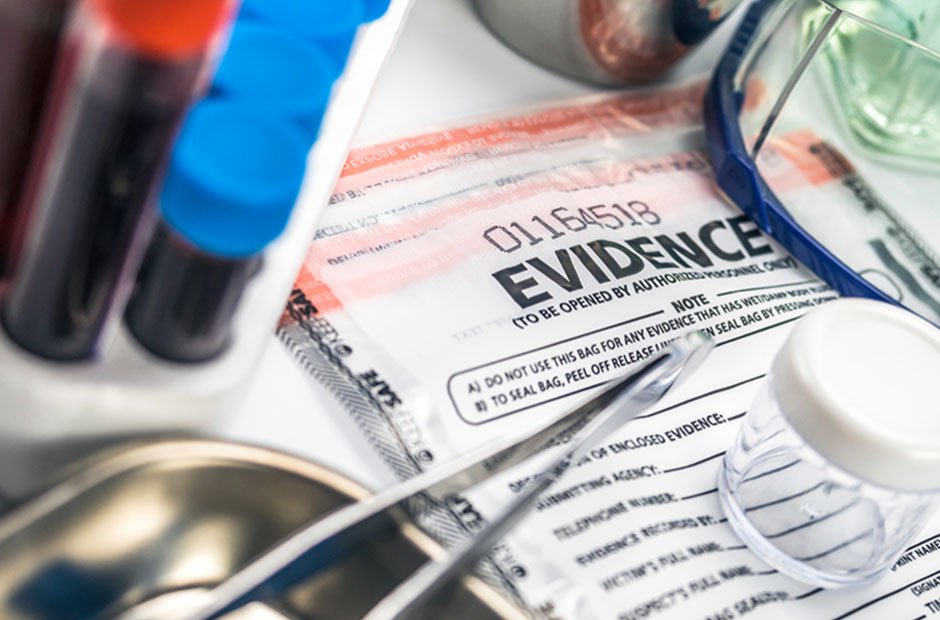Forensic evidence has emerged as a crucial component in contemporary criminal inquiries and legal proceedings. Ranging from examining fingerprints to profiling DNA, forensic methods have greatly enhanced the precision and dependability of resolving criminal cases. This article delves into the diverse role that forensic evidence plays in cracking criminal investigations.
Table of Contents
Fingerprint Examination
One of the most long-standing and trustworthy forensic methods in criminal investigations is fingerprint analysis. Each person’s fingerprints are distinct, making them an excellent resource for identification. Forensic specialists examine latent prints found at crime scenes and compare them to known prints in their records. Fingerprint evidence is frequently used by criminal attorneys to confirm a suspect’s presence at the crime scene or associate a suspect with material evidence.
DNA Profiling
Forensic science has been dramatically transformed by DNA profiling, also known as DNA fingerprinting. This technique allows specialists to identify individuals with an exceptionally high level of accuracy based on their genetic information. DNA evidence plays a critical role in resolving cold cases, exculpating those who have been mistakenly accused, and pinpointing offenders in situations where conventional evidence is insufficient. To contest or verify DNA evidence presented in court, criminal lawyers often seek advice from DNA experts.
Bloodstain Pattern Analysis
Bloodstain pattern analysis is another crucial forensic technique. It involves the examination of blood spatter at a crime scene to understand how events transpired. The angle, size, and shape of blood droplets can provide valuable insights into the sequence of events and the position of individuals involved. Bloodstain pattern analysis can be used to determine the direction of an attack, the number of assailants, and the type of weapon used.
Ballistics and Firearms Identification
Ballistics and firearms identification help solve crimes involving firearms. Ballistic experts examine bullets, shell casings, and firearms to determine the origin of a bullet or the type of firearm used in a crime. This information can link a weapon to a specific crime or suspect. The work of these experts is often critical in providing a criminal lawyer with essential evidence to build their case or challenge the prosecution’s claims.
Toxicology and Drug Analysis
Toxicology plays a significant role in cases involving substance abuse, poisoning, or drug-related crimes. Toxicologists examine bodily fluids and tissues to identify drugs, alcohol, or toxic substances. This information can help establish factors like drug impairment or overdose, providing valuable evidence for criminal cases. Criminal lawyers may consult toxicologists to assess the validity of drug-related evidence or challenge the accuracy of drug test results.
Digital Forensics
In the digital age, electronic evidence has become increasingly important in criminal investigations. Digital forensics experts recover and analyze data from computers, smartphones, and other digital devices. They can uncover deleted files, emails, text messages, and web browsing history, providing valuable insights into a suspect’s activities and intentions. Criminal lawyers often rely on digital forensics to establish alibis, corroborate or challenge witness statements, and reveal hidden information.
Forensic Entomology
Forensic entomology is a niche field that utilizes knowledge of insect life cycles to estimate the time of death and other information in homicide investigations. In a consistent manner, insects inhabit human remains, which enables forensic entomologists to establish the duration a body has been present at a crime scene. Although not as prevalent as other forensic methods, forensic entomology can be quite useful in situations where determining the time of death is crucial.
Obstacles and Debates
Forensic evidence, despite being beneficial in numerous criminal cases, faces its share of hurdles and disputes. Inaccurate analysis, contamination, and misreading of evidence may result in false convictions. Furthermore, there is an increasing understanding of the importance of implementing quality control and standardization within forensic labs to guarantee the dependability of their findings. Criminal attorneys hold a vital position in examining forensic evidence and questioning its legitimacy if needed, safeguarding their clients’ rights.
Forensic evidence has undoubtedly enhanced the pursuit of justice in criminal cases. It has helped identify perpetrators, exonerate the innocent, and provide valuable insights into complex crime scenes. As technology and scientific methodologies continue to advance, forensic evidence will likely play an even greater role in solving criminal cases, shedding light on the truth, and ensuring that the legal system operates with increased accuracy and fairness. Criminal lawyers, in their roles as advocates for their clients, will continue to engage with and rely on forensic evidence as they seek to uphold the principles of justice and protect the rights of the accused.
